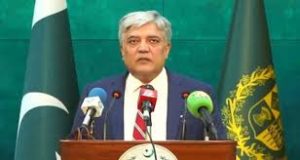Euroviews. The farmers’ protests should be taken seriously by Europe’s leadership

Brussels: The opinions expressed in this article are those of the author and do not represent in any way the editorial position of Euronews.
The ability of enraged minorities to act should not be underestimated, as this poses significant political and electoral risks — the past few weeks have proven it, Radu Magdin writes.
It doesn’t require a sophisticated political observer or analyst to recognise that an unprecedented number of Europe’s farmers have taken to the streets.
In this super-electoral year, with European elections scheduled for the beginning of June, they are seeking to capitalise on the political opportunity.
Strategically, this is the best time to express their grievances and to compel politicians to pay close attention to what they have to say.
The farmers are maximising their chances of success, so we should not be too harsh in condemning their tactics, even though their approach is causing headaches in many European cities and capitals.
It would be a mistake to solely focus on the repertoires of protests, on what the farmers can do to make their claim-making more convincing and vivid for those witnessing the protests and being, more or less, affected by them.
Regardless of how many memes one could see on social media, or AI-generated images with straw bales surrounding the Eiffel Tower, this is more than an aesthetic exercise.
Many European farmers, especially the small ones and those part of family farms, are suffering.
For them, this activity is part of their identity, and they find it increasingly hard to survive economically in a world where every input is getting more expensive, forcing them to reduce margins to the point that profit becomes a chimaera.
Furthermore, this entire episode should be seen as more than an attempt to negotiate from a position of strength under the threat that farmers (and the rural world in general) will abandon their conservative or centre-right voting proclivities to boost the chances of the radical right in this consequential year.
Who will be next? Who will put more pressure on the European and national elite? How politicians will respond to the farmers’ predicament and grievances will, in no small part, determine what will happen.
So, in a normal world, these events should be an invitation to honest discussion and decisions, for well-thought-out policies, and for genuine engagement that is more than photo-ops and kicking the can down the road until the polls have closed.
When looking at these protests, the instinct is to be sympathetic to these people’s demands and to wonder whether this is not part of a bigger trend, of various groups feeling left behind and alienated.
So, one is right to wonder, who will be next? Who will put more pressure on the European and national elite? How politicians will respond to the farmers’ predicament and grievances will, in no small part, determine what will happen.
Apparently, a rational perspective would start with the figures. Thus, as many have already pointed out, agriculture accounts for only 1.4% of the EU’s GDP, 4.2% of the EU’s employment, and 14.3% of the EU’s greenhouse gas emissions, while, at the same time, receiving approximately 30% of the EU budget.
In the context of the EU’s quest for climate neutrality, Green Deal implementation, and fighting climate change in general, farmers should not pose too much of a problem, at least when considering these numbers.
However, the reality is much more nuanced, and we should approach all this from a different angle, taking into account political inequality, responsiveness, and the willingness to act by those who feel betrayed by their representatives.





